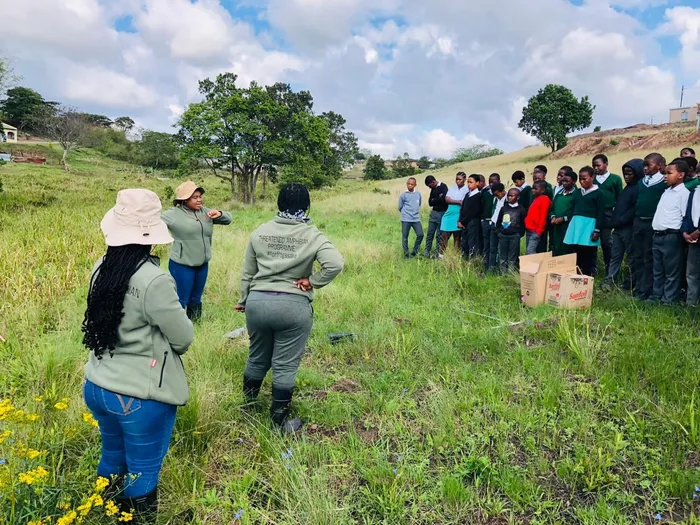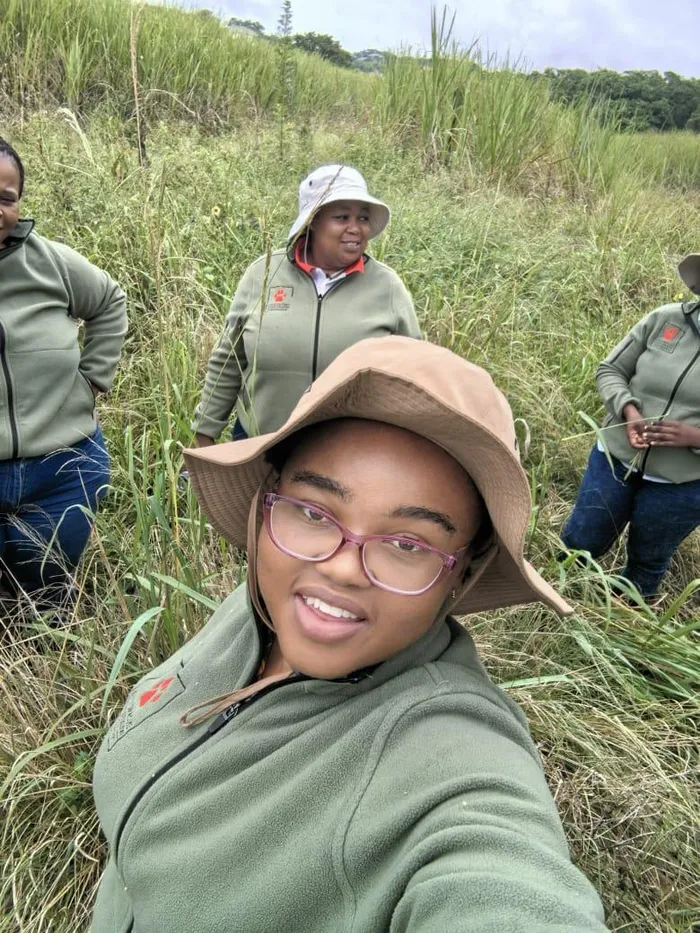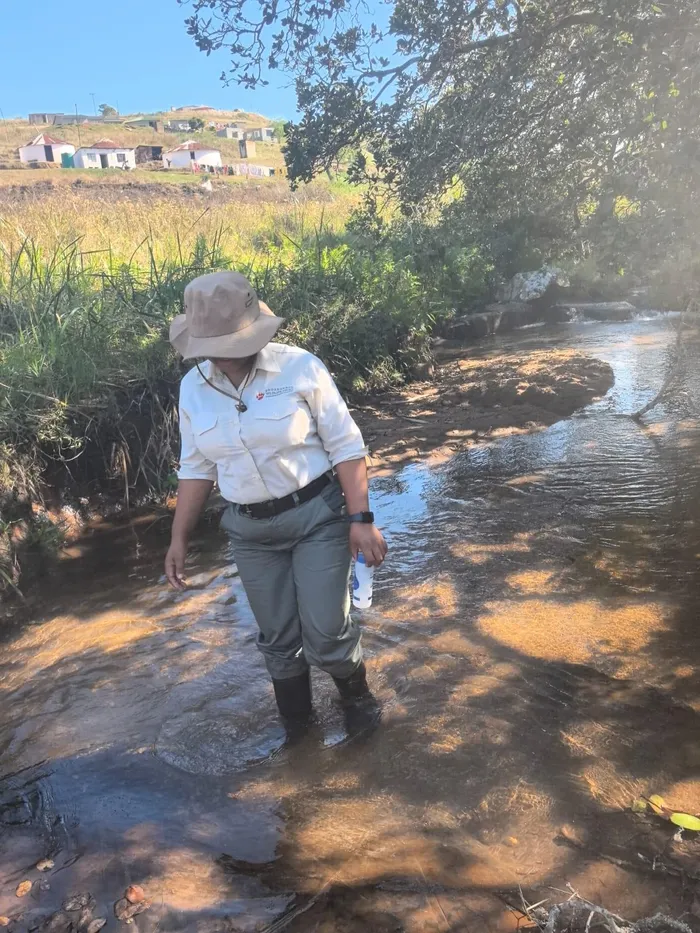Leading from the Wetlands: Nonkazimlo Mafa’s mission bridging conservation and community

Nonkazimlo speaking to school children.
Image: Supplied
Nonkazimlo Mafa is proving that conservation is not just about protecting species, it’s about translating science into action.
As a biodiversity stewardship facilitator turned project manager in Durban, she’s using her skills to simplify scientific knowledge for local communities while working to protect endangered wetland frogs like the Pickersgill’s reed frog.
The 33-year-old mother of two began her conservation career at WWF-SA as a biodiversity stewardship facilitator shortly after completing a B.Agric in Extension and Production at the University of Fort Hare. Over time, she honed a key skill that continues to define her work: the ability to translate scientific information into accessible knowledge for local communities. That experience eventually prepared her for a transition into project management.
In May last year, she joined the Endangered Wildlife Trust (EWT), where she now works across communal and privately owned land in Durban’s semi-urban and urban areas.

Nonkazimlo in the field doing alien invasive species clearing.
Image: Supplied
Mafa is the Urban Ecology Project Manager at the Endangered Wildlife Trust, in the Threatened Endangered Species Unit, formerly the Threatened Amphibian Programme. Her work is centred on the protection of wetlands.
Her work covers two locations including the Adam’s Mission in Amanzimtoti and Widenham in Umkomazi.
She leads efforts to reduce the impact of human activities on wetlands through habitat restoration, removal of invasive alien plants and reintroduction of native species. Her work also includes raising community awareness about the importance of wetlands and promoting environmental education in schools.
“Wetlands are well known for their distinctive function; they filter pollutants from the water. The wetlands in Adams Mission and Widenham wetland Protected Environment are also a home to two Endangered frog species namely, Pickersgill reed frog (Hyperolius pickersgilli) and the Kloof frog also known as the Natal Diving frog (Natalobatrachus bonebergi),” she said.

Nonkazimlo in the field.
Image: Supplied
Since the 1700s, nearly 90% of the world’s wetlands have been degraded. World Wetlands Day, celebrated on February 2 annually, aims to raise national and global awareness about the vital role of wetlands and to inspire action to halt their rapid loss through conservation and restoration efforts.
Mafa explained that these critical habitats face growing threats from pollution, invasive alien plants, and illegal developments.
“I am passionate about rural development and ensuring that people from villages enjoy and appreciate their land and see opportunities it has for economic growth rather than relocating to big cities for work. We promote stewards of nature conservation; we encourage and guide the community to better manage their natural resources. Learn to co-exist with nature.”
When working with communities, Mafa emphasised the importance of respecting community values, such as “ask for any relevant dress code or manner of approach when you first engage with the community”.
While the sector is male dominated, Mafa does not see it as a setback.
“There is huge opportunity for women; they must not be scared, the transformation has been amazing and welcoming for women”.
Cape Times